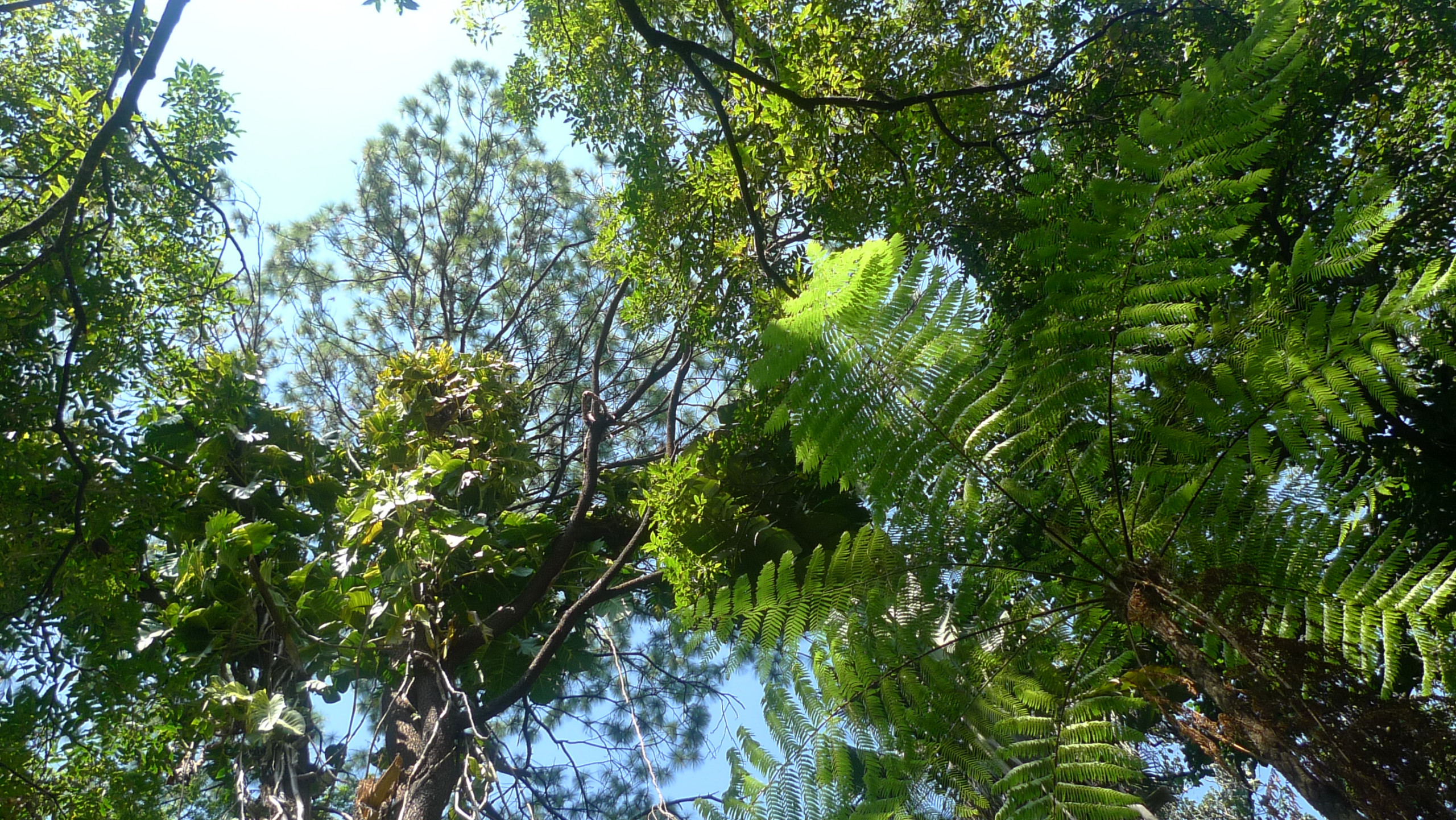Exploring the pathways to verified sustainable tropical timber
Blog by Marieke de Vries
CNV is involved in activities to improve sustainability of tropical timber, among others through its participation in the Dutch International Responsible Business Conduct Agreement for the sector. Marieke de Vries, who represents CNV in this agreement, travelled to Berlin to explore international pathways to verified sustainable tropical timber. She shares her experiences at the European Sustainable Tropical Timber Coalition’s conference STTC, facilitated by Probos.
“With participation of a broad group of representatives from consumer and producing countries; both from business, government and Civil society, there is a good mixture in the room for explorations.
Different busses
Together we go on the journey of certification schemes like EUTR, FLEGT licensing and Voluntary Principle Agreements. These different ‘busses’ lead us to highlighting the stepwise approaches that are present to go towards sustainable tropical timber.
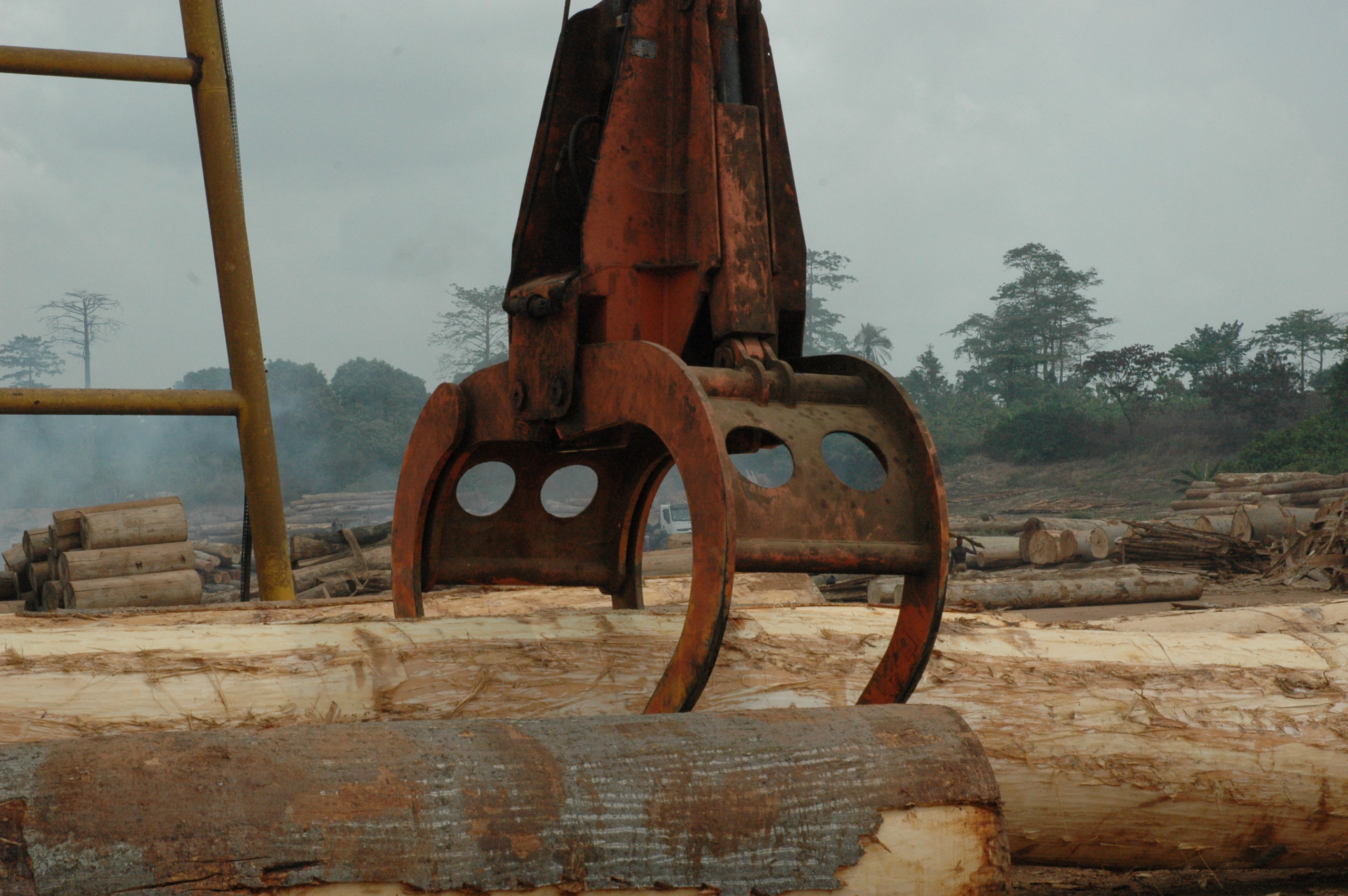
Inviting the elephant in the room
Concerned by the facts Reinier van den Berg (Meteogroup) presented about the Netherlands flooding and many other countries facing drought, we return to the subject of necessity of sustainability.
What about the social agenda? What about the labour rights and conditions of the workers in the forest concessions, furniture building factories or plywood manufacturers?
Unfortunately the issues of these stakeholders are not automatically addressed when talking about sustainability. As a true unionist I address this elephant, that I invited into the room myself ;-)
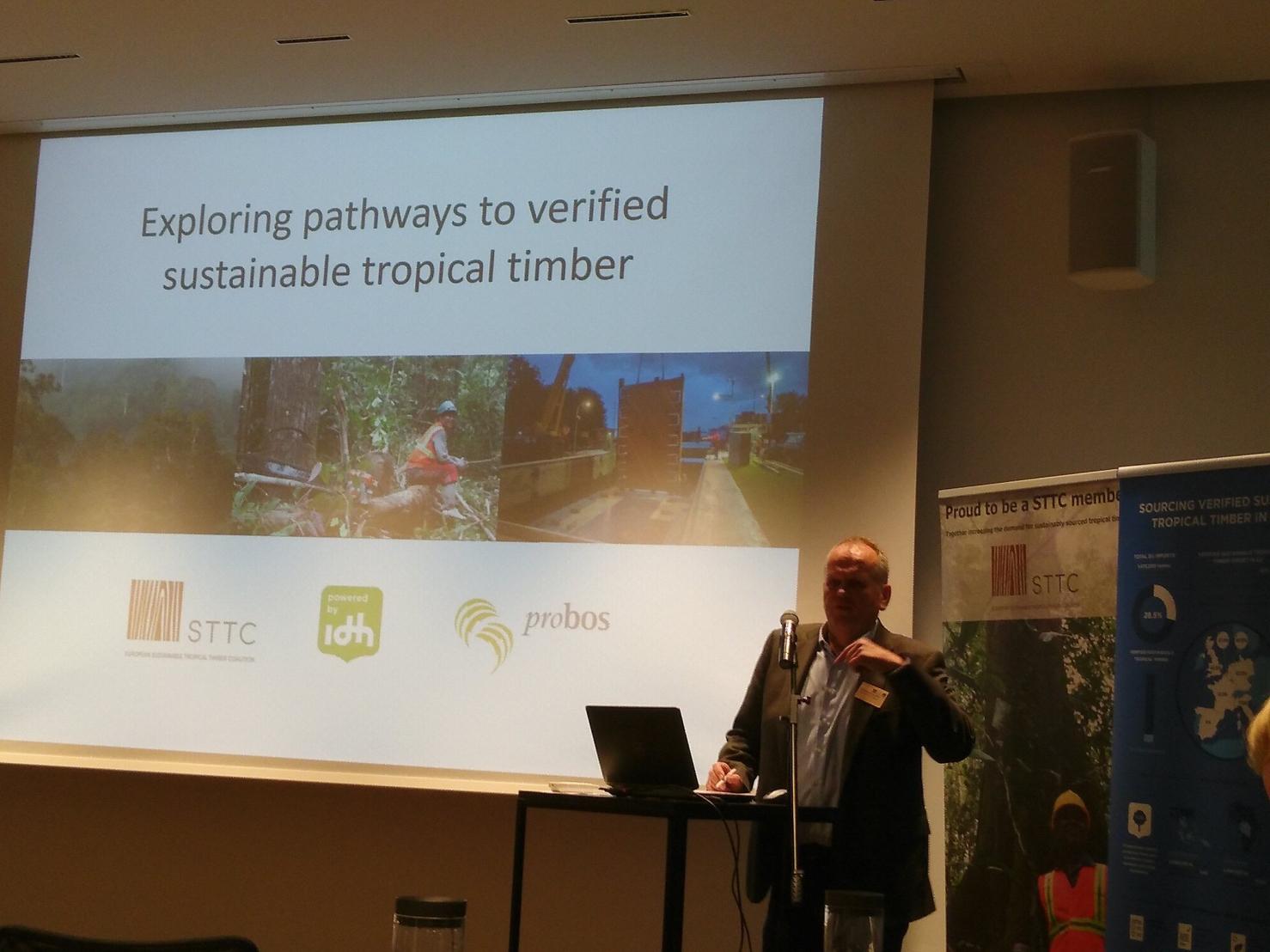
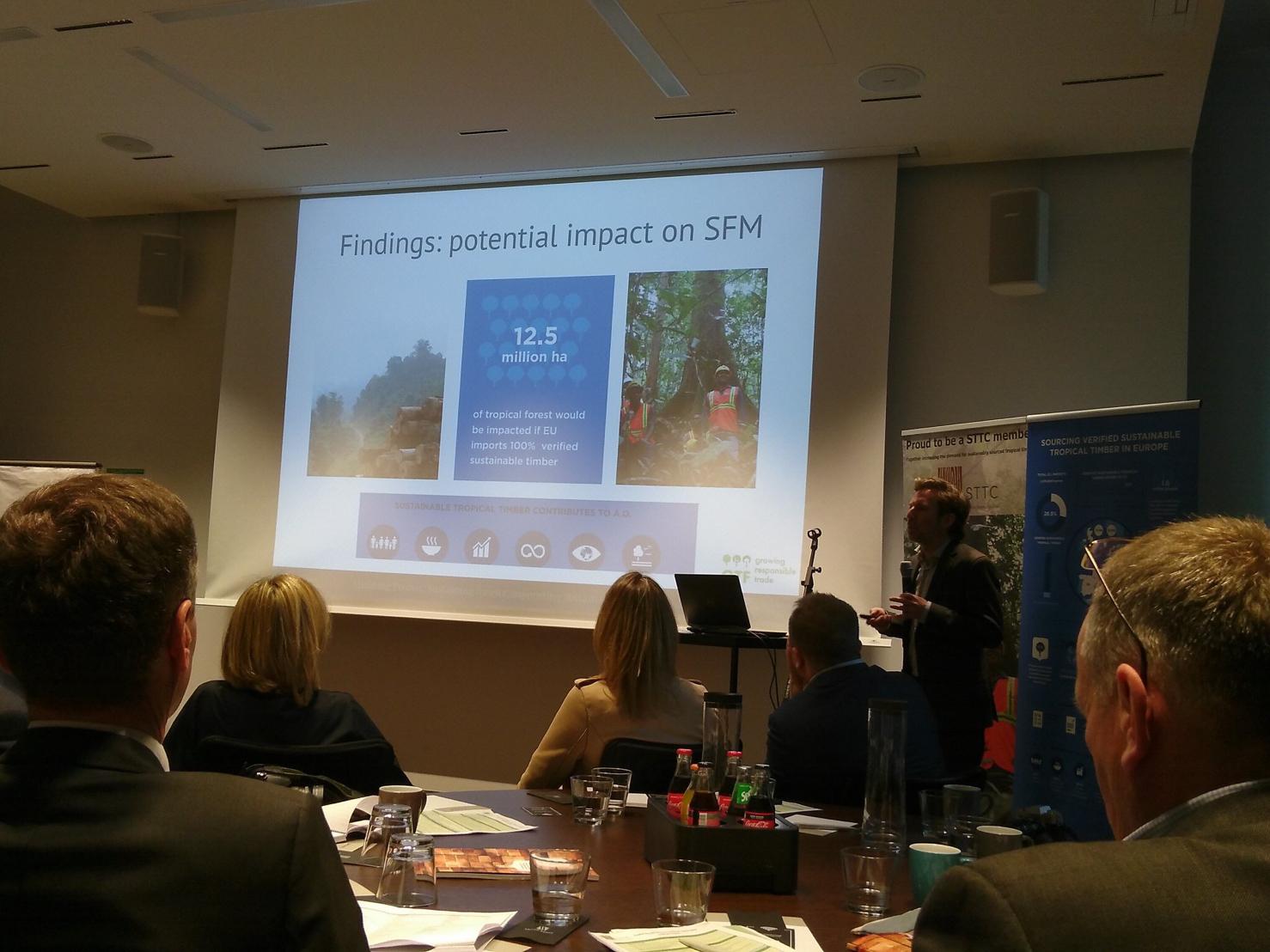
The legality of timber
We discuss the matter of legality of timber, when we are dealing with a weak or corrupt state, when enforcing the law is missing or enforced for other benefits. We also address the lack of transparency in the long supply chain from the forest to the manufacturing factories towards Europe.
Traceability is not only important for the legal aspects of wood, but also refers to other parts in the chain where workers are concerned. If this long supply chain becomes more transparent, we can check if countries uphold their promises on ILO conventions, OESO and UNGPs.
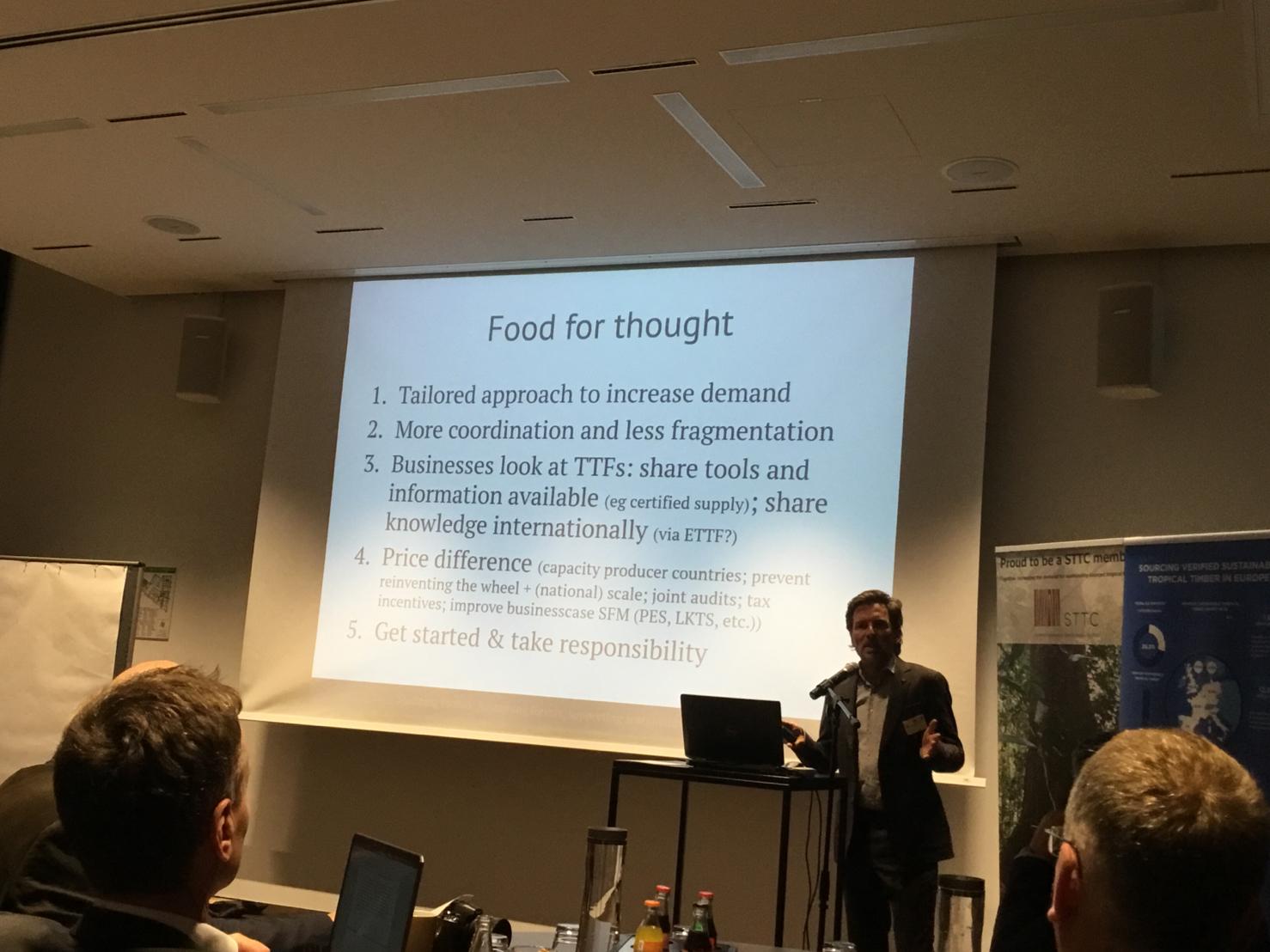
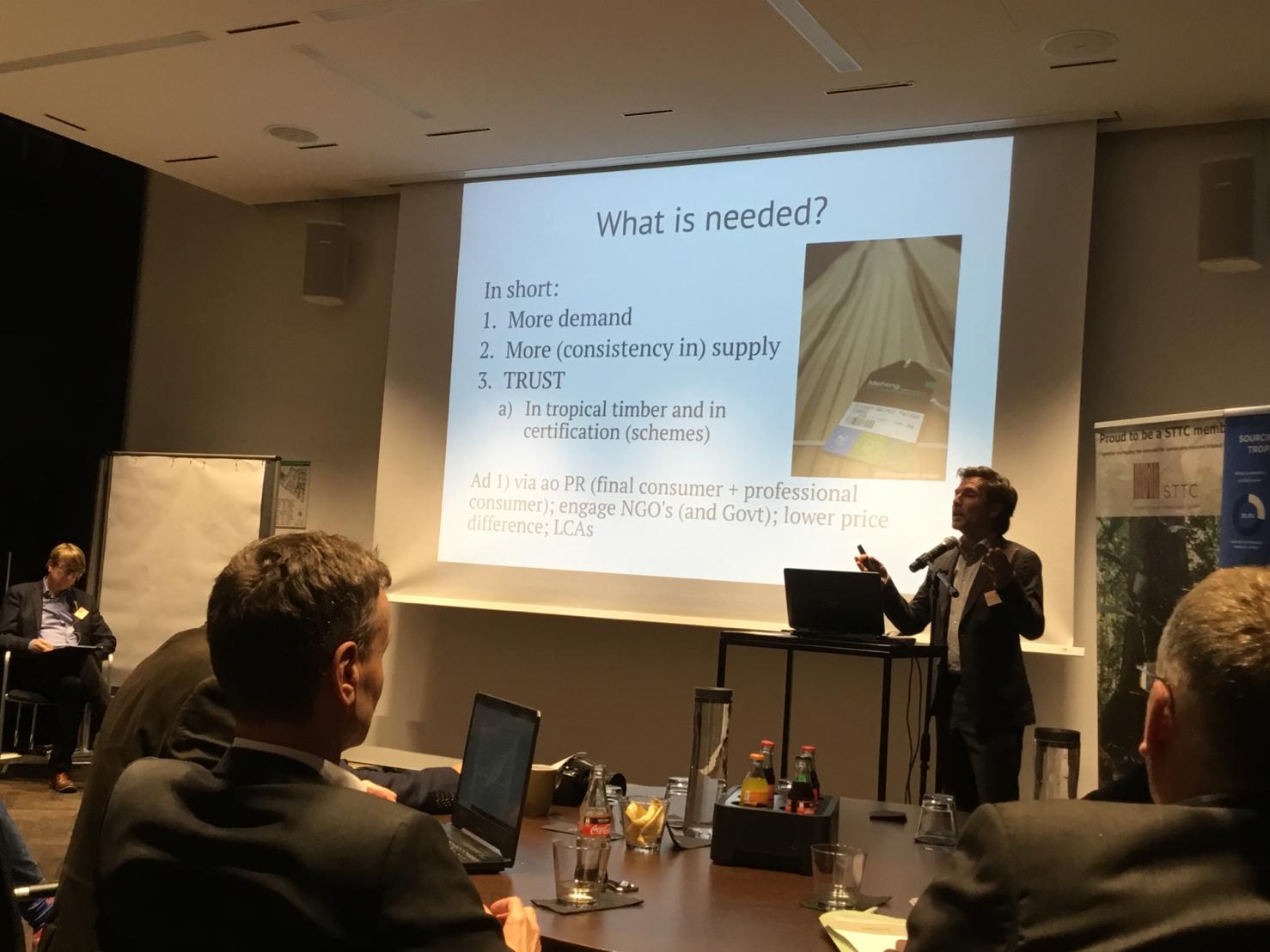
Cooperation
The difficulties are acknowledged within the room. But also a lot of cooperation is offered, by certification companies, by trade associations from European countries, by technical experts and sustainability organisations. Contacts are initiated with Malaysia and China, all interested in analysing the social aspects and impact of the value chain of wood products. The discussions in the room are enlightening.
Sometimes different sides seem to compete for the same goals. In the end the urgency of improvement of social aspects brings everybody on the same side.
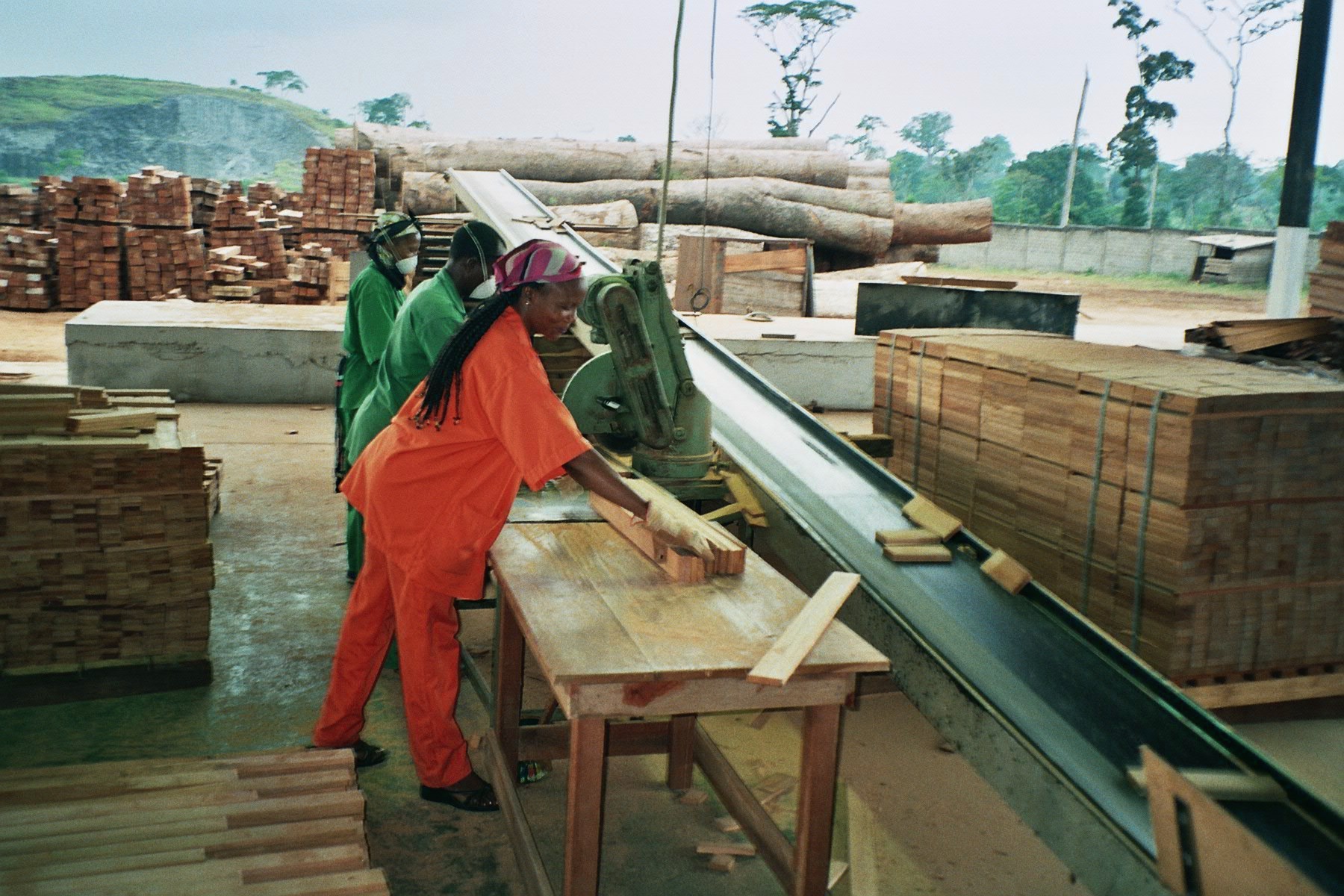
Innovative steps to follow up
A list of six visionary steps is put forward from the table discussions, STTC has taken on the job to follow up on these innovative ideas, bringing people together to step up our game. I, for one, am especially keen to work towards:
- A value chain umbrella coalition; in which topics like labour rights, occupational safety and health, parallel auditing, and deforestation can be tackled multi-disciplinary. Taking into account all stakeholders involved in one area with different commodities, but similar constraints and demands.
- Open space dialogue in each country, where all the players and stakeholders from the forestry sector join to work towards sustainable timber.
- Conducting an in-depth analysis of the International Responsible Business Conduct in the manufacturing furniture and other wood products supply chain, imported by the top 5 exporters to the Netherlands, consisting of risk assessment, mitigation options, OECD due diligence steps.
Join the journey!
If you want to join us on this journey in 2020 or know persons and organisations who should be joining us, please contact me !
